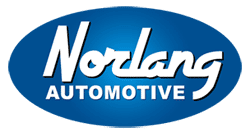Most of our Norlang Auto customers in the Lower Mainland care about their vehicles and are always asking our team of expert technicians about some of the things they can do to keep them running in top condition. One of the simplest things we always remind our customers, especially those whose engine warning light has been activated or those with carbon build-up in their intake tract and valves, is to choose their fuel more carefully!
5 Tips for Choosing Your Fuel
- Buy fuel from high-volume stations. This will ensure it is relatively free of any deposits or sediments that may have built up in gas stations’ reservoirs.
 Choose “Top Tier Detergent Gasoline,” that contains effective detergent additives to prevent the build-up of deposits inside your engine. The world’s top automakers recommend this and as of 2017 have included this recommendation in their owner’s manuals. By using this type of fuel, you will be able to maintain a higher standard of engine cleanliness and performance as compared to using fuel which only meets the EPA requirement. What’s more, Top Tier fuels are less likely to contain metallic additives, which can damage your vehicle’s emission system and create pollutants. Fuel brands that have the Top Tier Detergent Gasoline designation can be identified through their marketing campaigns, and/or by fueling station signage.
Choose “Top Tier Detergent Gasoline,” that contains effective detergent additives to prevent the build-up of deposits inside your engine. The world’s top automakers recommend this and as of 2017 have included this recommendation in their owner’s manuals. By using this type of fuel, you will be able to maintain a higher standard of engine cleanliness and performance as compared to using fuel which only meets the EPA requirement. What’s more, Top Tier fuels are less likely to contain metallic additives, which can damage your vehicle’s emission system and create pollutants. Fuel brands that have the Top Tier Detergent Gasoline designation can be identified through their marketing campaigns, and/or by fueling station signage.- Use the octane your car’s engine has been designed for. You can find this information in your owner’s manual or on your dashboard near the fuel gauge or on the inside of your fuel cap. Remember, that higher octane does not always mean higher engine performance. However, high-performance engines need higher octane fuel because of higher engine compression ratios.
- Switch to a higher octane fuel at about 150,000 km since your engine will most likely develop carbon build-up and there is an increased possibility of pre-detonations. Of course, you can avoid this issue by having your intake valves cleaned by our expert technicians who will use walnut blasting to clean the carbon deposits and restore your engine’s performance and fuel efficiency.
- Hot and cold weather can affect how well your vehicle runs. It’s recommended that if you are driving in areas with extremely hot temperatures, you should choose higher octane fuel. This is because when hot air enters the cylinder, there is an increased possibility of pre-detonation as it is mixed with the fuel and compressed.
Some Safety Suggestions While Refueling
- Never keep your engine running.
- Smoking or lighting matches/lighters is strictly prohibited and extremely dangerous.
- Cell phones and other electronic devices should be turned off and left in the vehicle.
- You should never get back into your vehicle while refueling even in cold weather.
- Avoid any activity that might result in static electricity build-up and discharge.
- Do not attempt to “top off” your vehicle’s fuel tank.
- Make sure that the gas cap is securely tightened after refueling. If it’s not your “Check Engine” amber warning light may be activated.
For more information about your vehicle’s fuel system, visit us, call us at 604-888-8681 or book an appointment online now.


 Choose
Choose